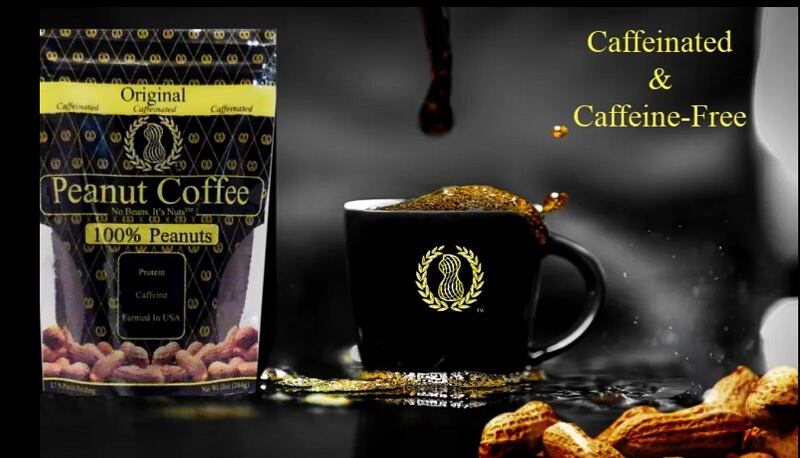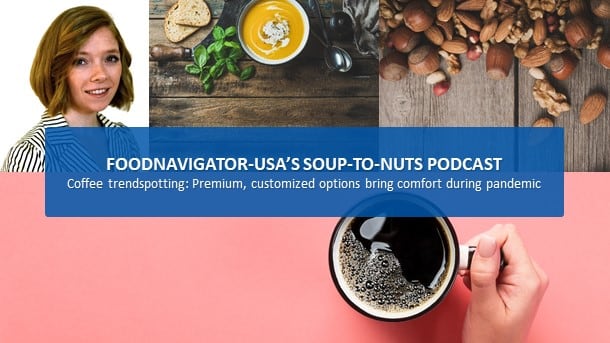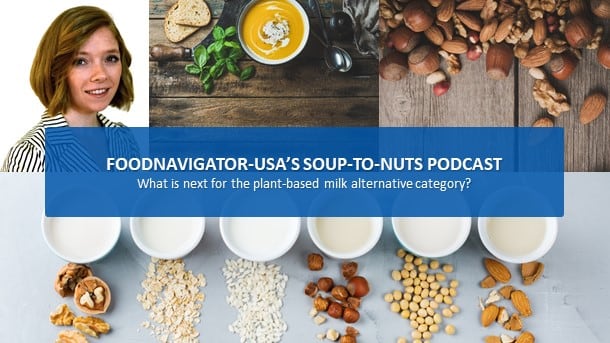Roasted, brewed and tasting like traditional coffee, Harrell’s Virginia Gold Peanut Coffee isn’t made from coffee beans that are harvested and shipped from the other side of the world, but rather from locally grown peanuts.
Harrell explained to FoodNavigator-USA that the idea for peanut coffee came to him one morning during harvest when the air of Suffolk was filled with the rich aroma of roasting peanuts and coffee beans.
“I was drinking coffee and smelling the roasting facilities and I thought, why can’t you turn peanuts into something that resembles coffee?” he said. “I went home, I got some peanuts, and I shoved them into the oven. Then I ground them and tried to make coffee out of them.”
It didn’t work.
But that didn’t stop Harrell from trying again until he overcame hurdles that likely would have stopped anyone else. The result is an entirely new category and marketing opportunity for peanut farmers.
“We have several peanut processing facilities here in Suffolk, Va., and there are all these signs and trucks with stickers on them saying ‘Eat more peanuts,'” said Harrell, who also recalled his grandfather always wishing people would eat more peanuts so there was more demand for the family business.
“Well, we’re the first company to get people drinking peanuts. We’ve created a new use for the peanut,” which is “good for business and it’s good for the consumer,” Harrell said.
An economic driver
While Virginia Gold’s Peanut Coffee hasn’t landed distribution in large retail grocers, Harrell said the beverage has significant opportunity as an economic driver and is available DTC on the company’s website, through some wholesale and a few local stores.
“It’s good for business because you increase consumption, and obviously that is good for the farmer … but its also good for business because the profit margins on a bag of peanut coffee are much better than [traditional] coffee,” Harrell said.
He explained that the contents of a 10-ounce bag of peanut coffee costs only about 6.5 cents to produce, which is less than the bag it is in. But consumers are so used to paying upwards of $12 or $13 for a similar sized bag of traditional coffee that they don’t blink an eye at Virginia Gold’s price of $8.99 for 10 ounces.
“This has one of the highest profit margins on the market today because it is selling in a category that consumer perceive as more valuable,” he added.
The beverage also has a leg up on traditional coffee because unlike its counterpart it is naturally caffeine free but can easily have caffeine added to it.
“Decaf coffee is an imperfect product. If it was perfect, it wouldn’t have caffeine at all … but decaf coffee still has 4-6% of caffeine,” which is too much for many people, Harrell said. Plus, he added, some people avoid decaf coffee because they don’t like the way it is processed or they don’t its acidity.
For those who prefer their coffee to offer a bit of pep, Harrell said, Virginia Gold also adds caffeine into a variety of its peanut coffee.
Another competitive benefit to peanut coffee is it offers a punch of protein, which traditional coffee does not, Harrell said.
‘People are very, very skeptical’
Despite the benefits of peanut coffee, Harrell said many people who haven’t had it before are “very, very skeptical. They are on the fence about it to the point where they don’t even want to try it – even a free sample of this stuff!”
But once they do, he said, they often fall in love with peanut coffee.
“We have people on the other end of the spectrum who are so enthusiastic about it and think it is the coolest thing,” he said.
Overcoming challenges to create added value
Lack of consumer understanding of the product has held back Virginia Gold to an extent – but it is not the only challenge the beverage faces, Harrell acknowledged. He explained that scaling production to meet distribution demands of large retail chains has also been a significant challenge.
As Harrell discovered the first time he tried to make peanut coffee in his kitchen oven, the high concentration of oil in peanuts makes it difficult to safely roast, grind and eventually brew.
“The peanut oil industry uses mechanical means and chemical means to separate oil form the peanut, which creates a meal or flour,” but if the oil is removed first the coffee doesn’t taste right, Harrell said. And if the oil is left in during the roasting it creates fire risks unless properly managed.
“I had to build my own equipment and figure out how to separate the oil out of the peanuts after they have been roasted,” and while this was initially challenging it also created opportunities and increased the value of Virginia Gold’s proposition, Harrell said.
He explained that his patent-pending process provides a layer of protection from me-too products and likely provides potential investors increased confidence.
The process also results in a thick, flavorful oil that Virginia Gold also sells as a specialty product to diversify its portfolio. A 16.9 ounce bottle goes for $10.99, which Harrell says when combined with the high margins of the coffee underscores the profitability of his proposition.
“Once we process 50 pounds of peanuts, which costs us pennies, literally pennies, we’re turning that into roughly $900. You’re just simply never going to sell coffee and get as much money, ounce for ounce, as you can for peanut coffee,” he said.




